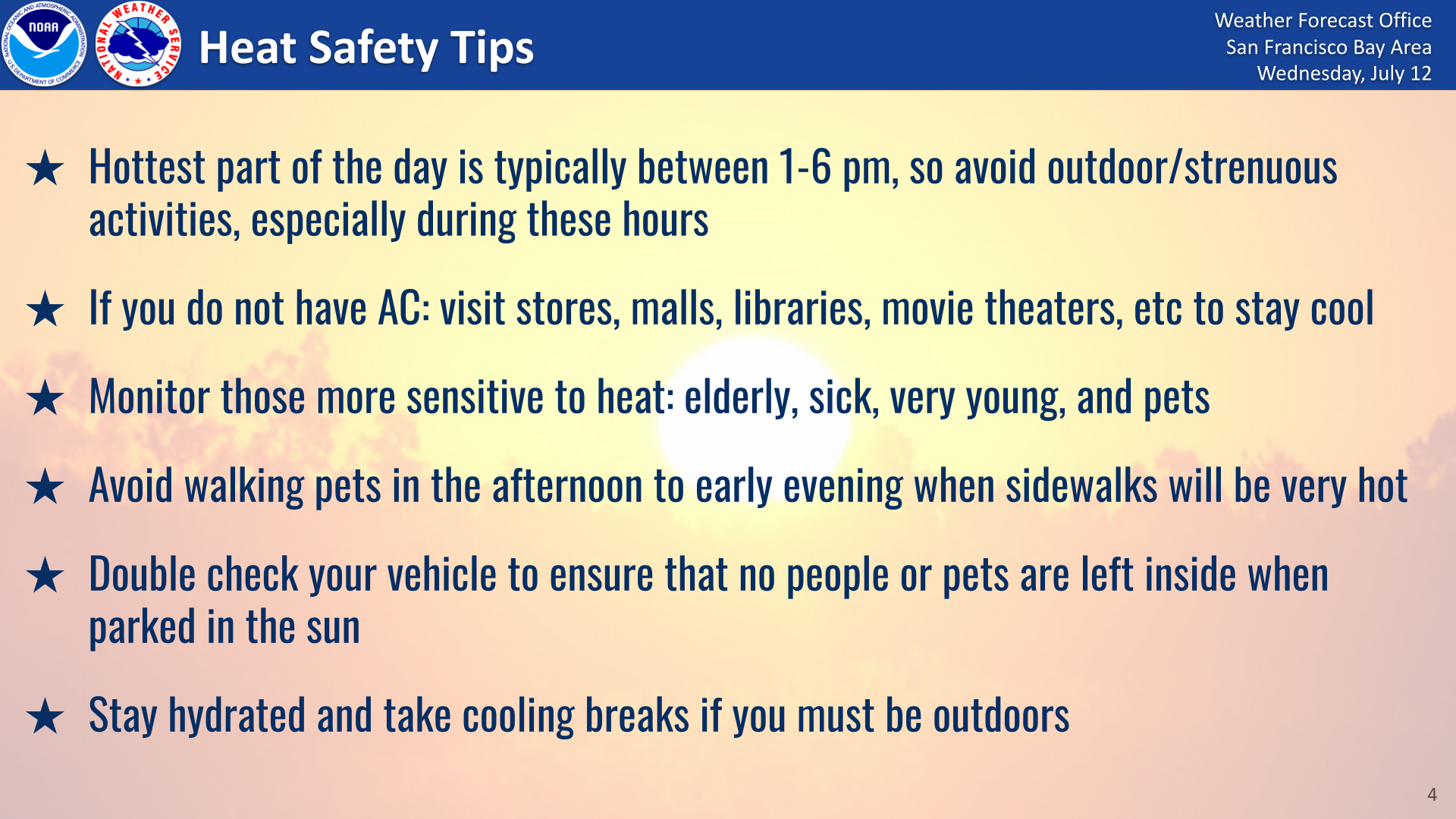Heat is one of the leading weather-related killers in the United States, resulting in hundreds of fatalities each year. Heat can be very taxing on the body; check out the heat related illnesses that can occur with even a short period of exposure. Everyone can be vulnerable to heat, but some more so than others. According to The Impacts Of Climate Change On Human Health In The United States: A Scientific Assessment some groups are particularly vulnerable to heat; check in with friends and relatives who fall in one of these populations, especially if they don’t have air conditioning.
People and pets may be more susceptible to heat effects. Stay hydrated, take cooling breaks, and never leave people or pets unattended in hot vehicles! County libraries, including the Cupertino Library, are available during regular business hours as places where people can go to get cool.
Follow Tips to stay safe:
Outdoor Activities
- Slow down. Reduce, eliminate or reschedule strenuous activities until the coolest time of the day. Those particularly vulnerable to heat such as children, infants, older adults (especially those who have preexisting diseases, take certain medications, living alone or with limited mobility), those with chronic medical conditions, and pregnant women should stay in the coolest available place, not necessarily indoors.
- Dress for summer. Wear lightweight, loose fitting, light-colored clothing to reflect heat and sunlight.
- Minimize direct exposure to the sun. Sunburn reduces your body's ability to dissipate heat.
Eating and Drinking
- Eat light, cool, easy-to-digest foods such as fruit or salads. If you pack food, put it in a cooler or carry an ice pack. Don't leave it sitting in the sun. Meats and dairy products can spoil quickly in hot weather.
- Drink plenty of water (not very cold), non-alcoholic and decaffeinated fluids, even if you don't feel thirsty. If you are on a fluid-restrictive diet or have a problem with fluid retention, consult a physician before increasing consumption of fluids.
- Do not take salt tablets unless specified by a physician.
Cooling Down
- Use air conditioners or spend time in air-conditioned locations such as malls and libraries.
- Use portable electric fans to exhaust hot air from rooms or draw in cooler air.
- Do not direct the flow of portable electric fans toward yourself when room temperature is hotter than 90°F. The dry blowing air will dehydrate you faster, endangering your health.
- Take a cool bath or shower.
Check on Others
- Check on older, sick, or frail people who may need help responding to the heat. Each year, dozens of children and untold numbers of pets left in parked vehicles die from hyperthermia. Keep your children, disabled adults, and pets safe during tumultuous heat waves.
- Don't leave valuable electronic equipment, such as cell phones and gps units, sitting in hot cars.
- Make sure rooms are well vented if you are using volatile chemicals.
- For more heat health tips, go to the Centers for Disease Control and Prevention


